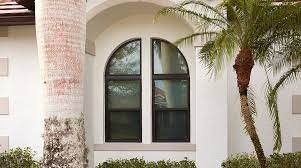When hurricanes hit the coast, they bring strong winds and heavy rain. These intense storms can cause significant damage to buildings, including smashing windows.
Good windows have weather stripping to prevent water from getting into your home. Great hurricane windows also have frames that aren’t as quickly blown over by high winds.
Strength
Hurricane windows are much stronger than those with standard glass, designed to withstand extreme weather conditions. Rather than using single panes of glass, they feature two pieces of heat-treated glass bonded together by a strong polymer layer between the panes.
They’re typically made with a protective material, such as polyvinyl butyral (PVB) or ethylene-vinyl acetate (EVA), that increases the window’s strength and makes it shatter-resistant. The best hurricane windows also have UV protection and are more energy-efficient than their non-impact-rated counterparts.
The DP ratings for impact windows vary by manufacturer, but the DP 50 rating means they can withstand strong winds of up to 50 PSF without giving way. In addition, a certified window must pass a series of tests, including striking it with 9-pound 2-by-4s propelled at various wind speeds.
Durability
Hurricane-resistant windows are a growing interest among builders and remodelers in the Southeast. They stand up to winds up to 200 mph without breaking and may reduce homeowners insurance costs in some areas.
They are safety glass with a laminated inner layer made from polyvinyl butyral or ethylene-vinyl acetate. It is strong enough to withstand airborne objects propelled by wind at hurricane speeds. The panes are rated for impact resistance, which means they have passed rigorous testing with 9-pound 2-by-4s and can withstand impacts from flying debris.
They also feature a permanent mark on the window that confirms it meets a specific Building Code standard for high-velocity hurricane zones. It is essential to read this mark carefully before purchasing a hurricane-resistant window for your home.
Energy Efficiency
Hurricane windows offer a range of energy efficiency benefits. They can save you significant money on your heating and cooling bills.
In addition, they help keep your home cooler by reducing the heat from the sun entering your home. These effects are mainly due to the specialized glass and coatings that hurricane-impact windows use.
They also have low U-factors and R-values, which help to reflect excess heat away from your home.
These windows are designed to be more energy-efficient than standard windows by regulating temperatures more effectively. The layered construction and low solar heat gain coefficient (SHGC) glass of impact windows help keep your home warmer in the winter and cooler in the summer, cutting your heating and cooling bills. It helps to reduce the need for additional heating or cooling when you’re not at home, lowering your utility costs significantly.
Hurricane windows are often accompanied by tints and Low-e coatings that enhance their energy efficiency capabilities. While these features may cost a little more, they’re a worthwhile investment in the long run.
Security
Aside from protecting your home and family during hurricanes, hurricane windows also offer added security. They keep burglars at bay and can even make it tougher for them to break into your home.
These windows are specially designed to withstand impacts from flying debris during hurricanes. They use impact-resistant glass and heavy-duty frames, often built from aluminum or vinyl.
This combination ensures they’ll withstand the force of a hurricane but doesn’t completely prevent your windows from breaking. For this reason, we recommend installing hurricane shutters over these film-coated windows to create a second layer of protection.
Another option is to board up your windows with large plywood sheets. It is a relatively inexpensive and effective method of storm protection, but it is a temporary solution and can be aesthetically unappealing. Laminated and polymer-reinforced glass with robust window frames can provide an even more secure barrier against wind and projectiles

